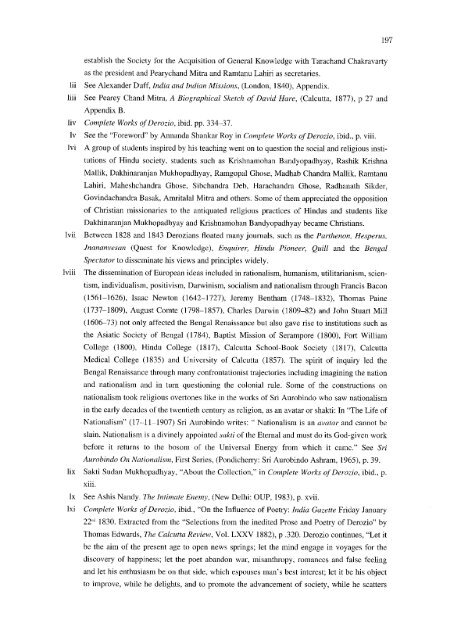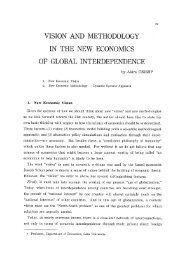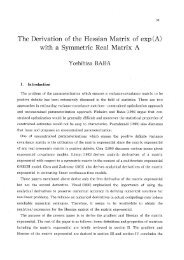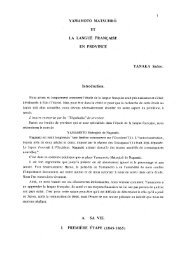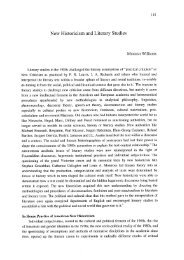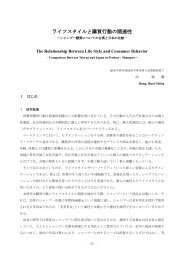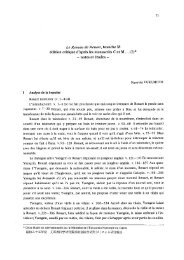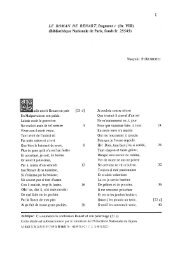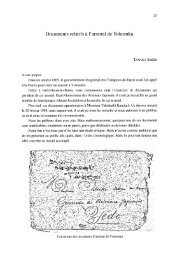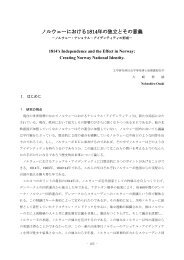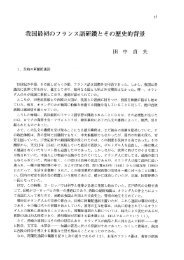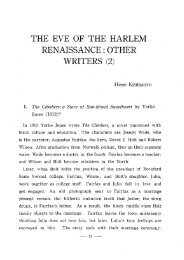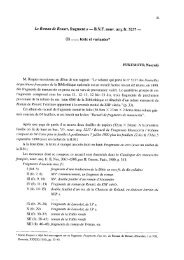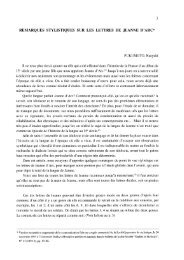Indian Writing in English 1794-2004 - Soka University Repository
Indian Writing in English 1794-2004 - Soka University Repository
Indian Writing in English 1794-2004 - Soka University Repository
You also want an ePaper? Increase the reach of your titles
YUMPU automatically turns print PDFs into web optimized ePapers that Google loves.
establish the Society for the Acquisition of General Knowledge with Tarachand Chakravarty<br />
as the president and Pearychand Mitra and Ramtanu Lahiri as secretaries.<br />
lii See Alexander Duff, India and <strong>Indian</strong> Missions, (London, 1840), Appendix.<br />
liii See Pearey Chand Mitra, A Biographical Sketch of David Hare, (Calcutta, 1877), p 27 and<br />
Appendix B.<br />
liv Complete Works of Derozio, ibid. pp. 334-37.<br />
lv See the "Foreword" by Annanda Shankar Roy <strong>in</strong> Complete Works of Derozio, ibid., p. viii.<br />
lvi A group of students <strong>in</strong>spired by his teach<strong>in</strong>g went on to question the social and religious <strong>in</strong>sti-<br />
tutions of H<strong>in</strong>du society, students such as Krishnamohan Bandyopadhyay, Rashik Krishna<br />
Mallik, Dakh<strong>in</strong>aranjan Mukhopadhyay, Ramgopal Ghose, Madhab Chandra Mallik, Ramtanu<br />
Lahiri, Maheshchandra Ghose, Sibchandra Deb, Harachandra Ghose, Radhanath Sikder ,<br />
Gov<strong>in</strong>dachandra Basak, Amritalal Mitra and others. Some of them appreciated the opposition<br />
of Christian missionaries to the antiquated religious practices of H<strong>in</strong>dus and students like<br />
Dakh<strong>in</strong>aranjan Mukhopadhyay and Krishnamohan Bandyopadhyay became Christians .<br />
lvii Between 1828 and 1843 Derozians floated many journals, such as the Parthenon, Hesperus,<br />
Jnananvesan (Quest for Knowledge), Enquirer, H<strong>in</strong>du Pioneer, Quill and the Bengal<br />
Spectator to dissem<strong>in</strong>ate his views and pr<strong>in</strong>ciples widely.<br />
lviii The dissem<strong>in</strong>ation of European ideas <strong>in</strong>cluded <strong>in</strong> rationalism, humanism, utilitarianism, scien-<br />
tism, <strong>in</strong>dividualism, positivism, Darw<strong>in</strong>ism, socialism and nationalism through Francis Bacon<br />
(1561-1626), Isaac Newton (1642-1727), Jeremy Bentham (1748-1832), Thomas Pa<strong>in</strong>e<br />
(1737-1809), August Comte (1798-1857), Charles Darw<strong>in</strong> (1809-82) and John Stuart Mill<br />
(1606-73) not only affected the Bengal Renaissance but also gave rise to <strong>in</strong>stitutions such as<br />
the Asiatic Society of Bengal (1784), Baptist Mission of Serampore (1800), Fort William<br />
College (1800), H<strong>in</strong>du College (1817), Calcutta School-Book Society (1817), Calcutta<br />
Medical College (1835) and <strong>University</strong> of Calcutta (1857). The spirit of <strong>in</strong>quiry led the<br />
Bengal Renaissance through many confrontationist trajectories <strong>in</strong>clud<strong>in</strong>g imag<strong>in</strong><strong>in</strong>g the nation<br />
and nationalism and <strong>in</strong> turn question<strong>in</strong>g the colonial rule. Some of the constructions on<br />
nationalism took religious overtones like <strong>in</strong> the works of Sri Aurob<strong>in</strong>do who saw nationalism<br />
<strong>in</strong> the early decades of the twentieth century as religion, as an avatar or shakti: In "The Life of<br />
Nationalism" (17-11-1907) Sri Aurob<strong>in</strong>do writes: " Nationalism is an avatar and cannot be<br />
sla<strong>in</strong>. Nationalism is a div<strong>in</strong>ely appo<strong>in</strong>ted sakti of the Eternal and must do its God-given work<br />
before it returns to the bosom of the Universal Energy from which it came." See Sri<br />
Aurob<strong>in</strong>do On Nationalism, First Series, (Pondicherry: Sri Aurob<strong>in</strong>do Ashram, 1965), p. 39.<br />
lix Sakti Sudan Mukhopadhyay, "About the Collection," <strong>in</strong> Complete Works of Derozio, ibid., p.<br />
xiii.<br />
lx See Ashis Nandy. The Intimate Enemy, (New Delhi: OUP, 1983), p. xvii.<br />
lxi Complete Works of Derozio, ibid., "On the Influence of Poetry: India Gazette Friday January<br />
22nd 1830. Extracted from the "Selections from the <strong>in</strong>edited Prose and Poetry of Derozio" by<br />
Thomas Edwards, The Calcutta Review, Vol. LXXV 1882), p .320. Derozio cont<strong>in</strong>ues, "Let it<br />
be the aim of the present age to open news spr<strong>in</strong>gs; let the m<strong>in</strong>d engage <strong>in</strong> voyages for the<br />
discovery of happ<strong>in</strong>ess; let the poet abandon war, misanthropy, romances and false feel<strong>in</strong>g<br />
and let his enthusiasm be on that side, which espouses man's best <strong>in</strong>terest; let it be his object<br />
to improve, while he delights, and to promote the advancement of society, while he scatters<br />
197


